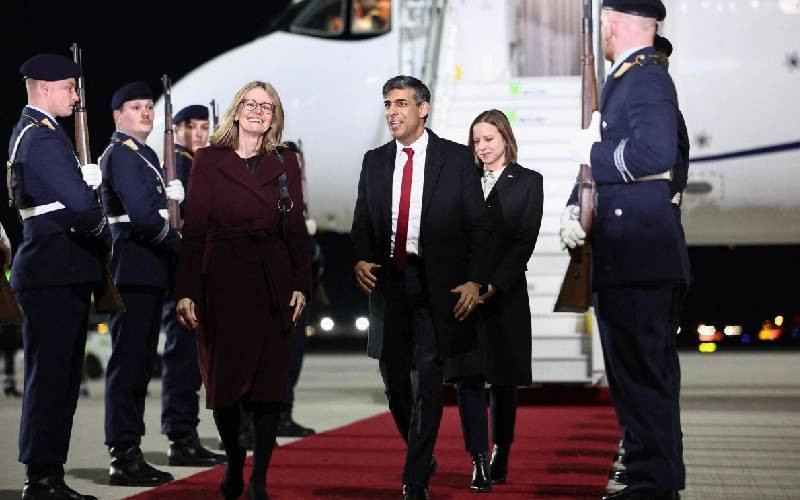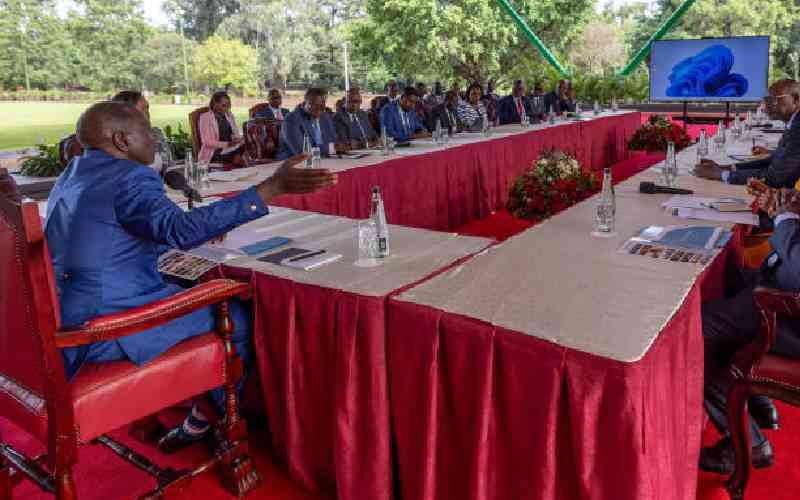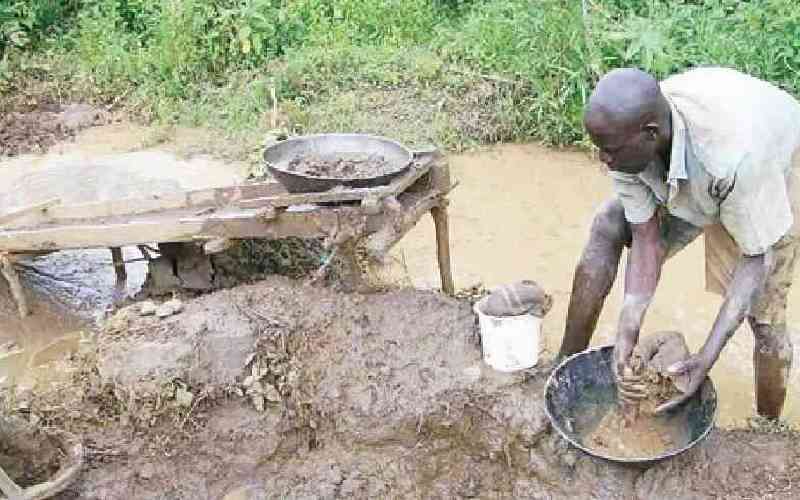Tomorrow, the country gears up for yet another ambitious Sh2.3 trillion budget. Treasury Cabinet Secretary Henry Rotich will be the man on the spotlight as he reveals how the Government plans to finance 2016/17 Budget.
In his last Budget statement, Rotich delivered a 14,407-word speech in one hour and 48 minutes without pausing for even a single sip of water. All in order to tell the August House about the Government’s plan.
Well, while he promised to grow the economy by between 6.5 and 7 per cent, figures from the Economic Survey 2016 showed that the country’s Gross Domestic Product (GDP), the total output of the economy, grew by 5.6 per cent.
Also, the current financial year has been characterised by job cuts, employment freezes and profit warnings, a pointer to a shrinking employment space. A record 18 Nairobi Securities Exchange-listed companies issued profit warnings. Chances that the firms will hire when their profits have shrunk by at least a quarter are dim. In 2014, only 11 publicly traded firms indicated their earnings would drop by at least 25 per cent.
By December last year, more than 10 companies had either laid off workers or announced plans of restructuring. Even government, the biggest employer, also announced plans to cut the number of civil servants.
Counter terrorism
In his 2015/16 Budget statement, Rotich said that the fiscal policy was to target revenue collection of 21.8 per cent of gross domestic product (GDP) over the medium term and containing the growth of total expenditure. That remains just on paper as debt still accounts for about half of the GDP. National debt had soared to a record Sh3 trillion.
And reports of revenue shortfall may cause Rotich some nightmares as he unveils the budget. With Pay-As-You-Earn (PAYE) accounting for more than half of taxes collected, job freezes, pay cuts and lay-offs will only drift the taxman off the revenue target further. KRA is already staring at a huge tax deficit this financial year. Revenue statements from the Treasury show the taxman had raised Sh888 billion by the end of April against a target of Sh1.2 trillion.
To meet the target, the taxman will be required to collect more than Sh327 billion in two months. This is a long shot given its collections history.
But it was also a fairly peaceful year as the country enjoyed some respite from the constant terror-linked attacks that the economy suffered in the previous year. Here, we highlight some of the hits and misses of the Jubilee administration in the 2015/16 financial year even as it enters the homestretch.
On security, Rotich proposed Sh223.9 billion, which was Sh27.1 billion higher than in the previous financial year. This, he said, was to provide the best counter terrorism capabilities.
The allocation came at a time when the nation was facing a series of terrorist attacks, which had brought tourism on its knees as some western countries issued travel advisories. This is the time when capital inflows also took a hit.
The number of attacks on Kenyan soil reduced with the last deadly attack being on Garissa University College where 148 people were killed and 79 injured.
However, the Sh1.7 billion allocation towards police medical insurance scheme remains just that, an allocation. The cover is yet to be implemented as hopes of about 80,000 police officers still hang onto a paltry risk allowance.
In addition, Sh1.3 billion that was allocated for police service towards housing has not eased the congestion. According to a February 2016 report by the Independent Policing Oversight Authority (IPOA), more than 59,000 officers are still forced to rent outside the police lines due to shortage of houses.
Stay informed. Subscribe to our newsletter
On graft, Rotich while reading last year’s statement said, it remains a challenge that continues to bedevil the nation by undermining the Government’s development agenda.
Therefore, he allocated Sh2.6 billion to Ethics and Anti-Corruption Commission and Sh2.2 billion to the Department of Public Prosecutions “to enable them speed up investigations and prosecutions.”
However, there is increased public outcry over high level economic crimes that go unpunished. Some of the recent cases have touched on electoral body, Judiciary and banking with some of them ongoing. While the number of graft cases investigation by EACC in 2010-11 was 2,816 leading to 25 convictions, convictions in 2014-15 reduced to just one conviction out of 2,747 reported cases.
By the end of this financial year, an additional 23 centres will have been rolled out, bringing the total number of Huduma Centres to 46. In 2015/16 financial year the plan was to reach all counties. However, so far only 34 counties have Huduma centres that are up and running.
On the ease of doing business, the March 2015 Business Regulatory Reform Strategy to raise Kenya’s global ranking paid off. According to World Bank’s Doing Business Indicators, Kenya improved 28 places to position 108 out of 189.
In his presentation, Rotich had indicated that the government aimed at reducing procedures, time and cost of starting a business, getting electricity and registering property by at least 80 per cent in 2016.
Interest rates
It is against this background that Rotich goes into 2016/17. But there is more to that. His bosses —President Uhuru Kenyatta and his deputy William Ruto would want their 2013 manifesto fulfilled as their term comes to a homestretch. The duo promised to grow the economy at between 7 and 10 per cent in two years creating a million new jobs.
They also promised to ‘cut waste and fight corruption’ to guarantee wise and proper expenditure of public resources. They also promised to ‘reduce public deficit’ enabling the government to spend money on services instead of paying debts. The Jubilee Government would also keep the exchange rate stable and control flow of money in order to lower interest rates and keep inflation at check.
This makes analysts to paint Rotich as a man lying on a bed too short to stretch his legs out with a blanket too narrow to wrap himself in.
 The Standard Group Plc is a
multi-media organization with investments in media platforms spanning newspaper
print operations, television, radio broadcasting, digital and online services. The
Standard Group is recognized as a leading multi-media house in Kenya with a key
influence in matters of national and international interest.
The Standard Group Plc is a
multi-media organization with investments in media platforms spanning newspaper
print operations, television, radio broadcasting, digital and online services. The
Standard Group is recognized as a leading multi-media house in Kenya with a key
influence in matters of national and international interest.
 The Standard Group Plc is a
multi-media organization with investments in media platforms spanning newspaper
print operations, television, radio broadcasting, digital and online services. The
Standard Group is recognized as a leading multi-media house in Kenya with a key
influence in matters of national and international interest.
The Standard Group Plc is a
multi-media organization with investments in media platforms spanning newspaper
print operations, television, radio broadcasting, digital and online services. The
Standard Group is recognized as a leading multi-media house in Kenya with a key
influence in matters of national and international interest.









